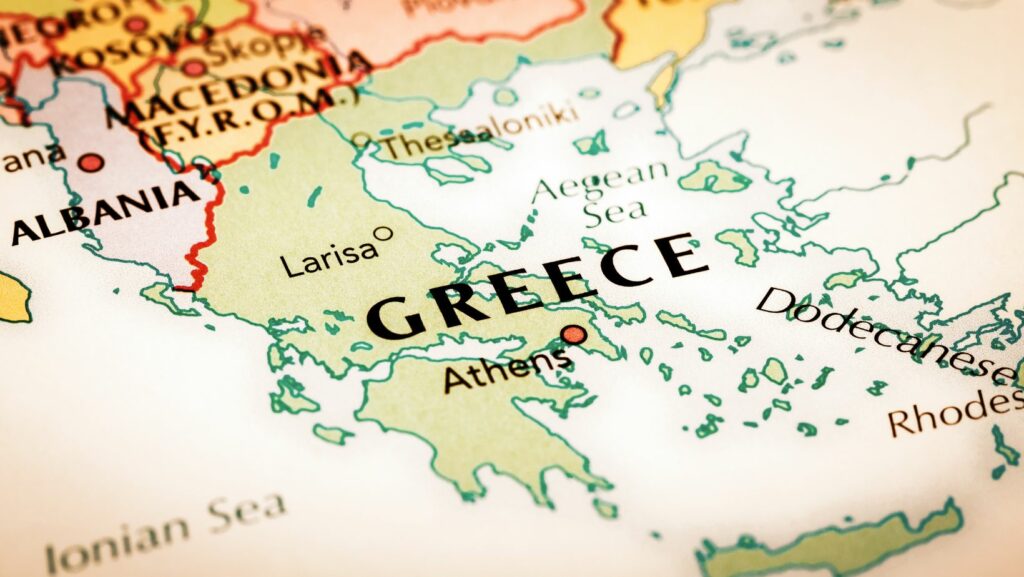Greece, with its sun-soaked beaches, ancient ruins, and vibrant culture, has long been a dream destination for travelers around the world. Whether you’re wandering through the historic streets of Athens or lounging on the idyllic islands of Santorini, Greece offers a unique blend of history and natural beauty that’s hard to resist.
Travel Tips for Greece
Greece offers a unique charm year-round, but certain periods maximize the experience. The best time to visit is generally from April to October. During these months, the weather is warm, and the chance of rain is low.
Peak Season: June to August
Peak Season (June to August)
- Temperature: 77°F – 95°F (25°C – 35°C)
- Highlights: Bustling beaches, nightlife, events.
Shoulder Seasons (April to June, September to October)
- Temperature: 70°F – 84°F (21°C – 29°C)
- Highlights: Pleasant weather, fewer tourists, lower prices.
Off-Season (November to March)
- Temperature: 50°F – 64°F (10°C – 18°C)
- Highlights: Cultural experiences, fewer crowds.
Understanding these seasons can help tailor your Greek adventure to your preferences!
Essential Travel Documentation
- Passport
- Visa Requirements
- Health Documentation
- Driver’s License and IDP.
- Travel Insurance
- Proof of Accommodation and Return Ticket
Having these documents ready will help ensure a smooth and enjoyable trip to Greece!
Packing Tips
- Clothing Essentials
- Footwear
- Accessories
- Travel Documents
- Electronics
- Toiletries and Medications
Packing these essentials will help you enjoy Greece’s stunning landscapes and rich culture without stress!
Transportation Tips
Using public transportation in Greece offers convenience and cost-effectiveness. The country boasts an extensive network connecting major cities and tourist spots.
- Navigating by Ferry
- Utilizing Trains
- Taking Buses
- Renting a Car
- Using Taxis
- Exploring on Foot
- Cyclists’ Insights
Ensuring a smooth travel experience in Greece involves understanding these transportation methods. This preparation enhances the journey, making it more enjoyable and efficient.
 Must-Visit Destinations
Must-Visit Destinations
Athens:
Greece’s historic capital, home to the Acropolis.
Santorini:
Famous for its white-washed buildings and blue domes.
Mykonos:
Known for its lively nightlife and beautiful beaches, including Paradise Beach.
Crete:
Greece’s largest island, rich in history and natural beauty.
Delphi:
An ancient sanctuary and mythological center featuring the Temple of Apollo and a theater.
Rhodes:
A blend of history and leisure, with a UNESCO-listed Old Town and the Palace of the Grand Master.
Meteora:
Famous for monasteries atop rock pillars, such as the Great Meteoron.
Thessaloniki:
Greece’s second-largest city, known for its cultural vibrancy.
Nafplio:
A coastal city with neoclassical architecture.
Budget-Friendly Travel Tips
- Book in Advance: Secure better rates for flights and accommodations by booking early.
- Affordable Dining: Eat at local tavernas and enjoy street food like gyros and souvlaki for authentic, low-cost meals.
- Public Transportation: Use buses and ferries to travel around Greece affordably.
- Tourist Cards: Purchase cards like the Athens City Pass for access to attractions, public transport, and discounts, which can be cost-effective for site visits.
- Free Activities: Enjoy free cultural experiences by strolling through historic areas, relaxing on public beaches, or hiking scenic trails.
- Travel Insurance: Invest in travel insurance for unforeseen expenses, but compare plans to find one that fits your budget.
By planning smartly and taking advantage of free activities, travelers can enjoy a memorable, budget-friendly experience in Greece!
Cultural Dos And Don’ts
Understanding cultural norms enhances any Greek adventure. Showing respect to local customs can foster positive interactions.
Dos:
- Greet with a Smile: Always smile and offer a light handshake when appropriate.
- Dress Modestly in Churches: Cover shoulders and knees when visiting religious sites.
- Use Proper Titles: Address people as “Mr.” or “Mrs.” followed by their last name.
- Learn Basic Greek Phrases: Use phrases like “Kalimera” (Good morning) and “Efharisto” (Thank you).
- Respect Meal Times: Be punctual for lunch (1 PM – 3 PM) and dinner (8 PM – 11 PM) if invited.
- Avoid Public Criticism: Criticizing Greek culture or politics can be offensive.
- Don’t Point with Your Finger: Gesture with an open hand and palm down.
- Avoid Informal Addresses: Don’t use first names without permission.
- Don’t Refuse Hospitality: Politely accept food or drink offered.
- Stay Quiet in Churches: Maintain silence in religious sites.
By following these guidelines, travelers can enjoy respectful interactions while exploring Greece’s rich culture.


